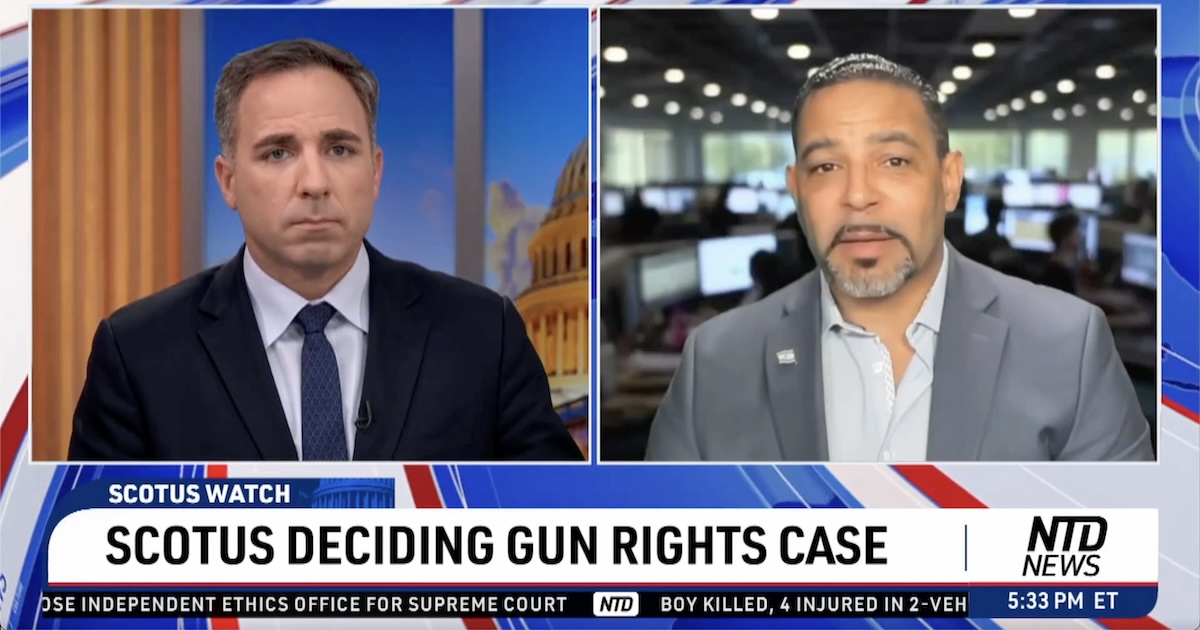
14 Jun 2024 Craig DeLuz: What the Supreme Court’s Bump Stocks Ruling Means for the Second Amendment and Separation of Powers
Today the U.S. Supreme Court struck down a federal rule banning bump stocks, ruling that a bump stock does not transform a firearm into an automatic weapon.
Project 21 Ambassador Craig DeLuz, a Second Amendment expert, discussed this case last week with NTD News’ Steve Lance, highlighting the implications that the decision would have both for the Second Amendment and separation of powers.
On “Capitol Report,” Craig told Steve:
I think it’s an interesting decision for this reason: In this case, you have an administration that’s decided that they are going to take something that’s defined in statute and they’re going to try to redefine it in order to ban a firearm or a firearm part that they don’t like.
Now when it comes to, for example, bump stocks: Not a lot of people own bump stocks. Not a lot of people are interested in owning bump stocks. So a lot of people decided, well we’re not even gonna really pay attention to that.
The problem with that is: What happens when you have an administration come along who starts to then say, well I’m gonna redefine firearms or firearm parts that people do like? Right? We’ve already allowed them to violate the separation of powers by trying to legislate from the executive branch. Believe it or not, the ATF does not get to make the law. They get to enforce the law.
I think that’s probably the biggest part of what we’re going to be seeing in this decision. It’s not just about the Second Amendment. It’s a direct attack on the Second Amendment, but it’s really also about protecting the rest of the Constitution and separation of powers. I believe that this Supreme Court in particular recognizes the overreach that many in the executive branch at all levels of government sadly have undertaken….
The implication is going to be, number one, whether or not executive offices or executive departments have the ability to basically legislate from their departments. Part of it is going to be that.
The other part is going to be whether or not it is going to further the folks who don’t support the Second Amendment in their belief that “OK, so you have a right to keep and bear arms; you have the right to own a gun. But you don’t have a right to the firearm parts that you want. You don’t have a right to the gun that you want. You don’t have a right to build your own firearm. You don’t have a right to sell firearms.” All of these things are now in question.
And they’re realizing that they can’t take away the Second Amendment, but they can nibble away at all the things around the Second Amendment such that it becomes too cumbersome or too expensive to be able to exercise that right….
There’s always pressure on Congress to revisit the Second Amendment. The challenge is that most of the people who are applying that pressure, and most of the folks in Congress, have little to no understanding of firearms or firearms technology. So oftentimes what happens is that when they start to push “solutions,” those “solutions” don’t actually solve the problem.
That’s also, quite frankly, been the issue in the courts. In many cases you have judges adjudicating over some of these court cases and they have very little understanding, once again, of firearm technology. For example, what is the definition of a “gun”? What is, in this case, a machine gun, when we’re talking about bump stocks? And when you look at the actual technology, you find out that in many cases the things that they are offering as solutions are not solutions.
It’s smoke and mirrors. It’s this “I’ve got to do something” mentality.
And I always go back on that, and I always say, “You know what? My car won’t start, so I need to rotate the tires because, you know, I’ve gotta do something.”




